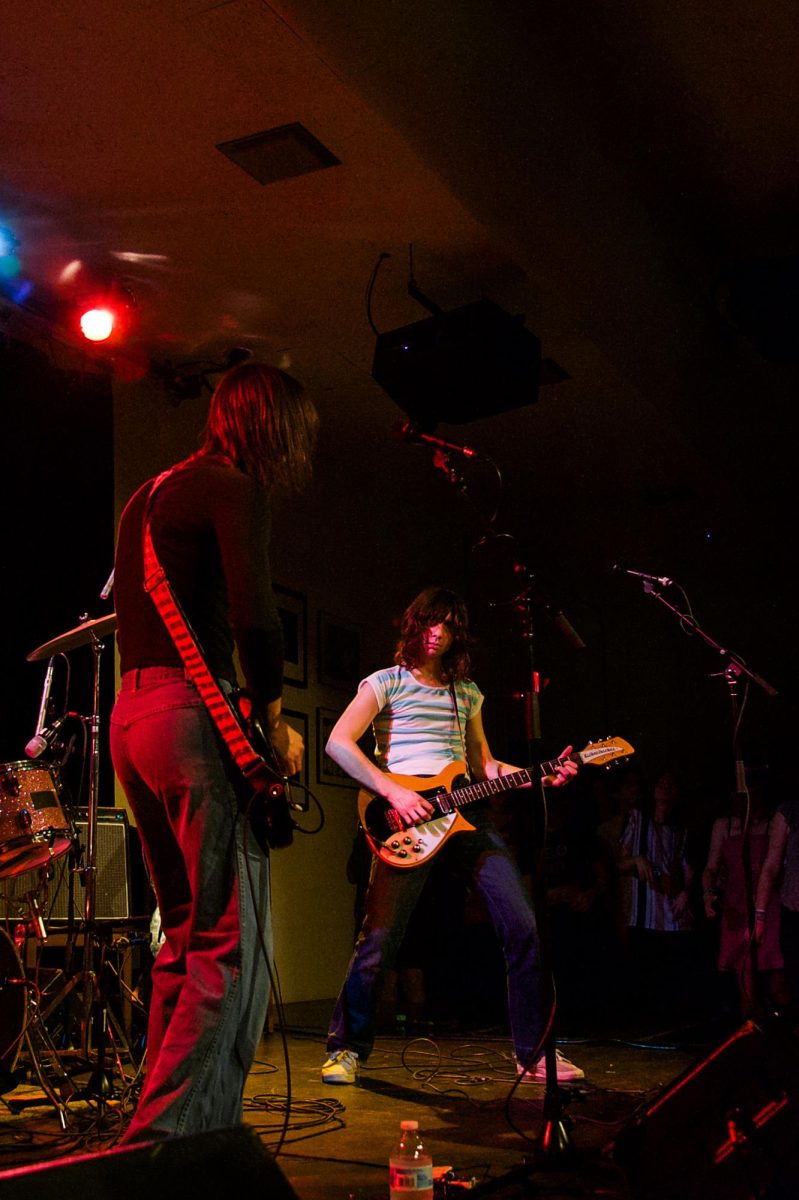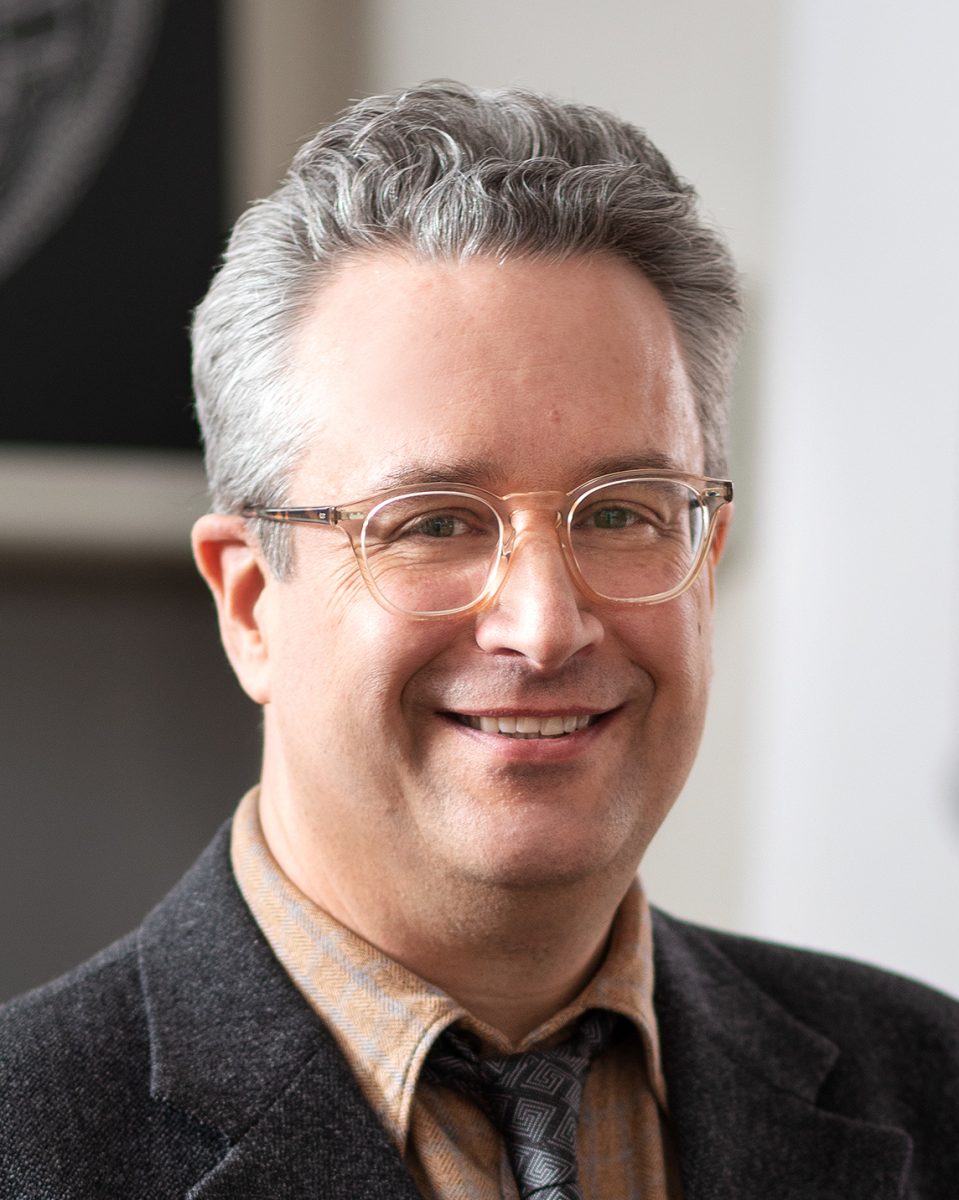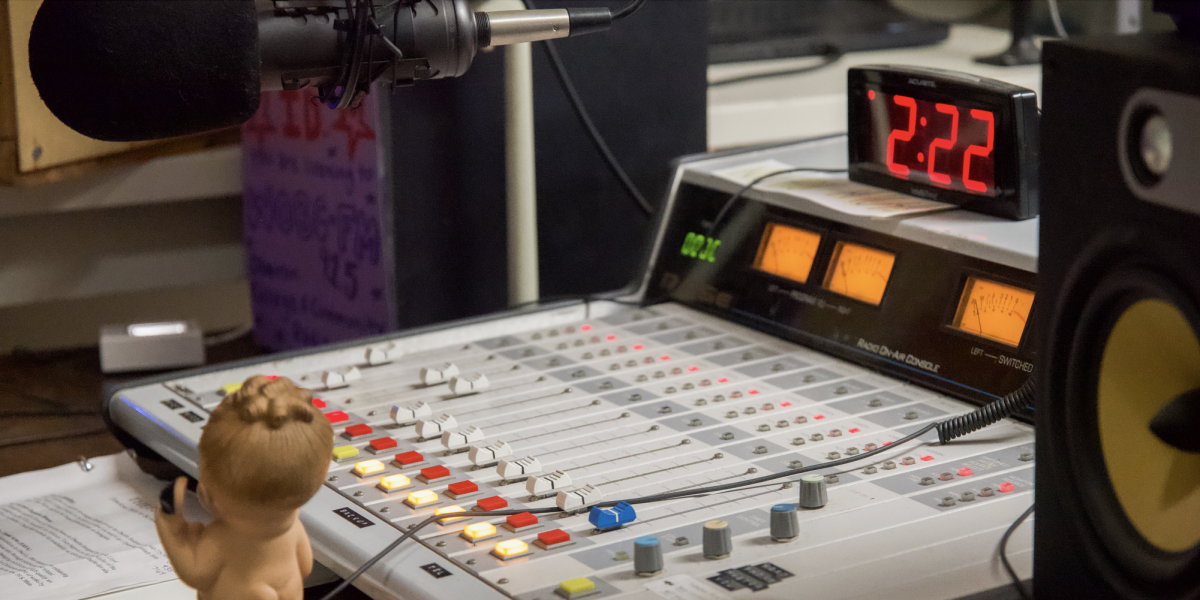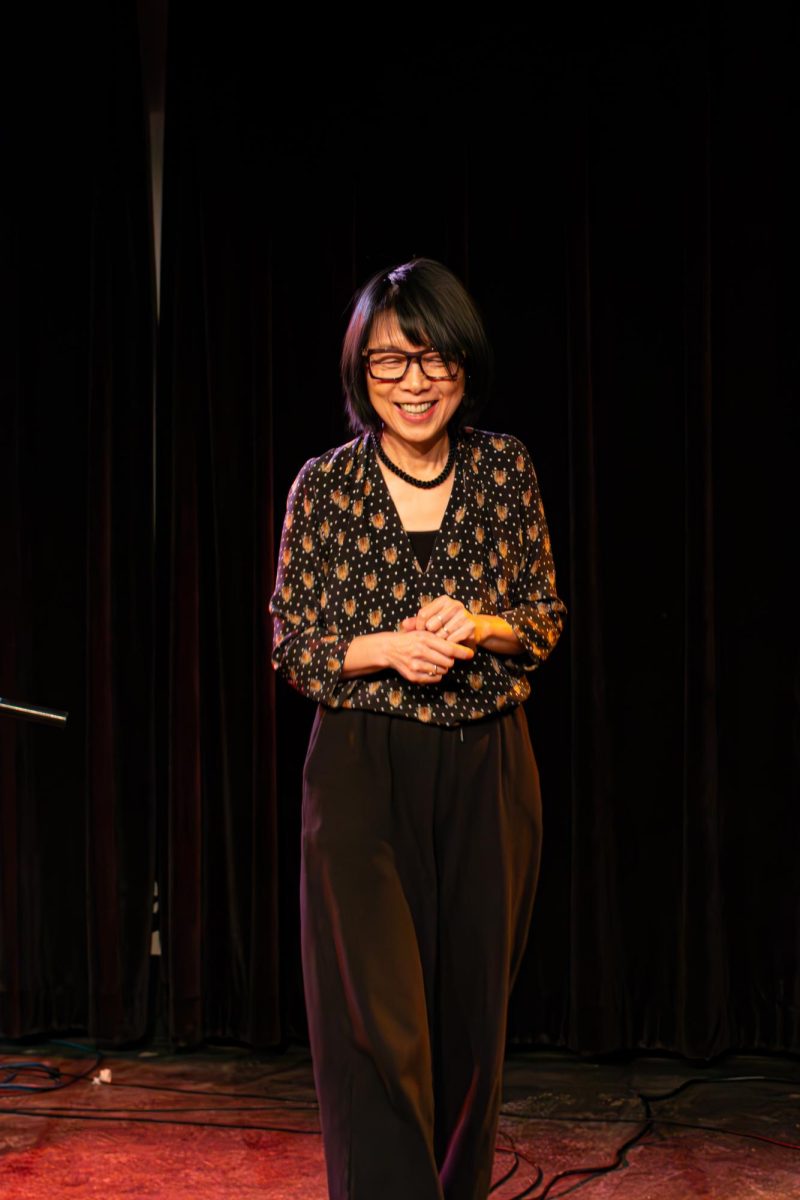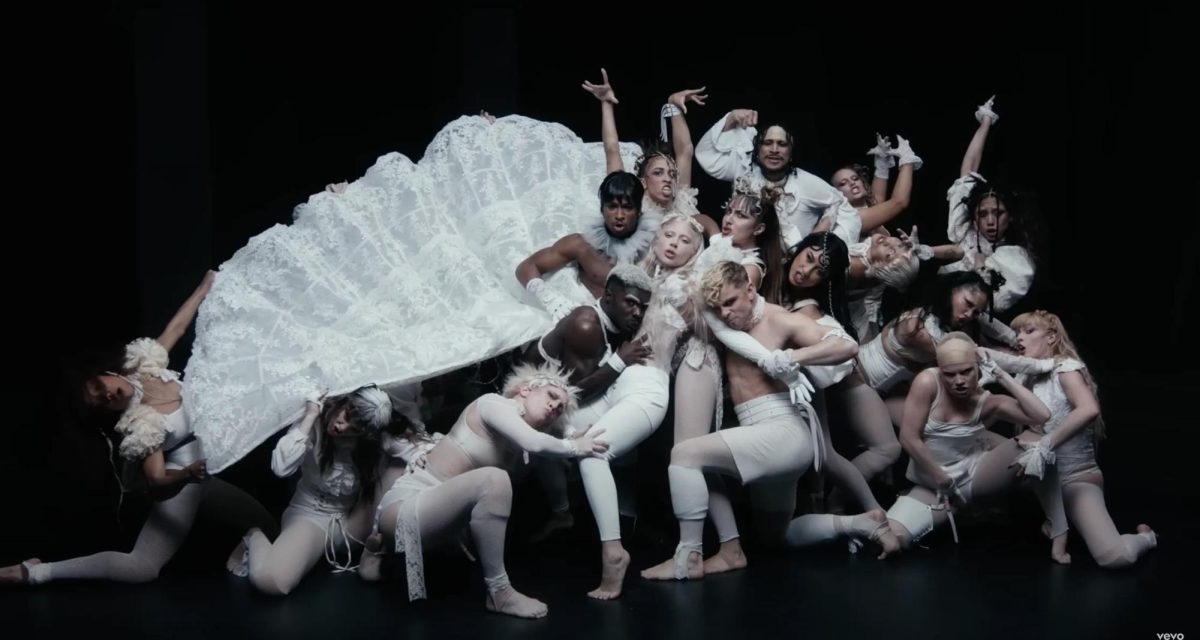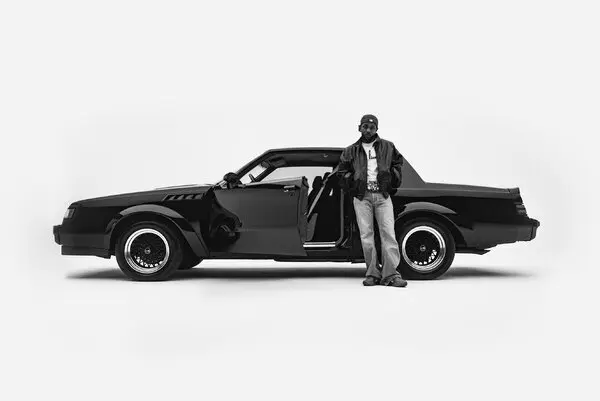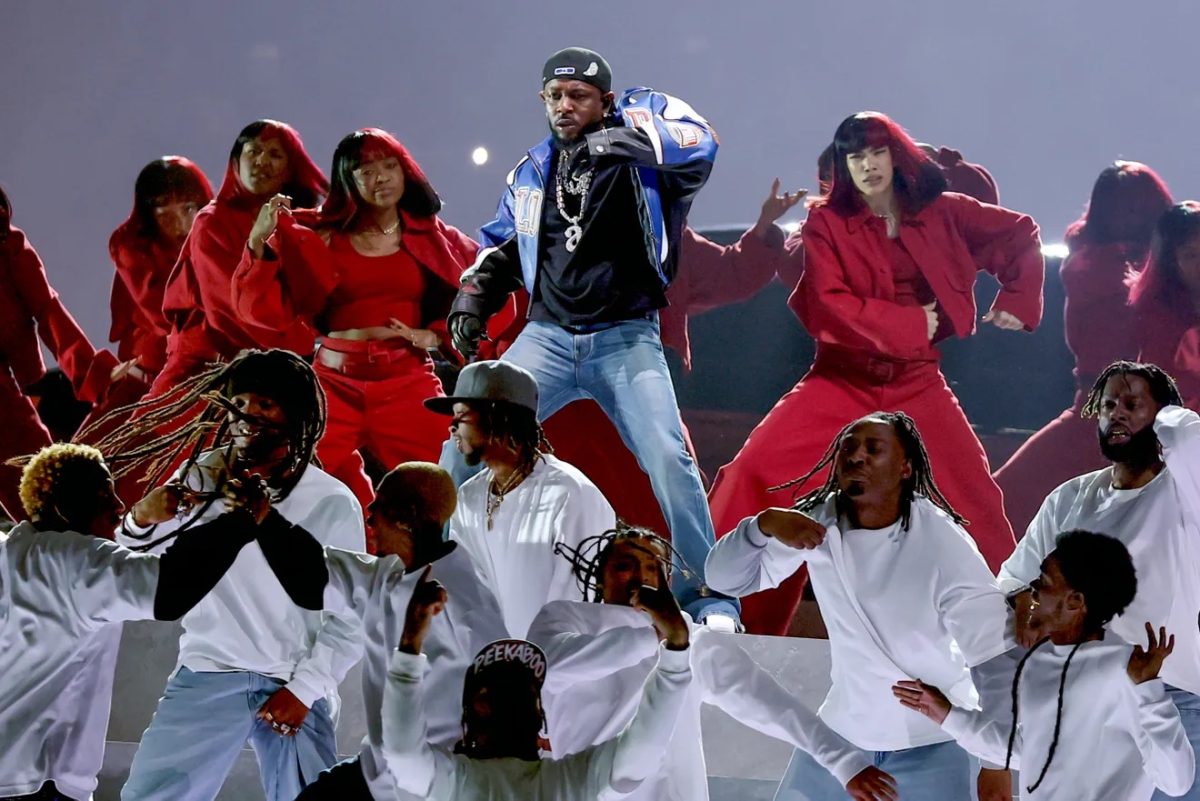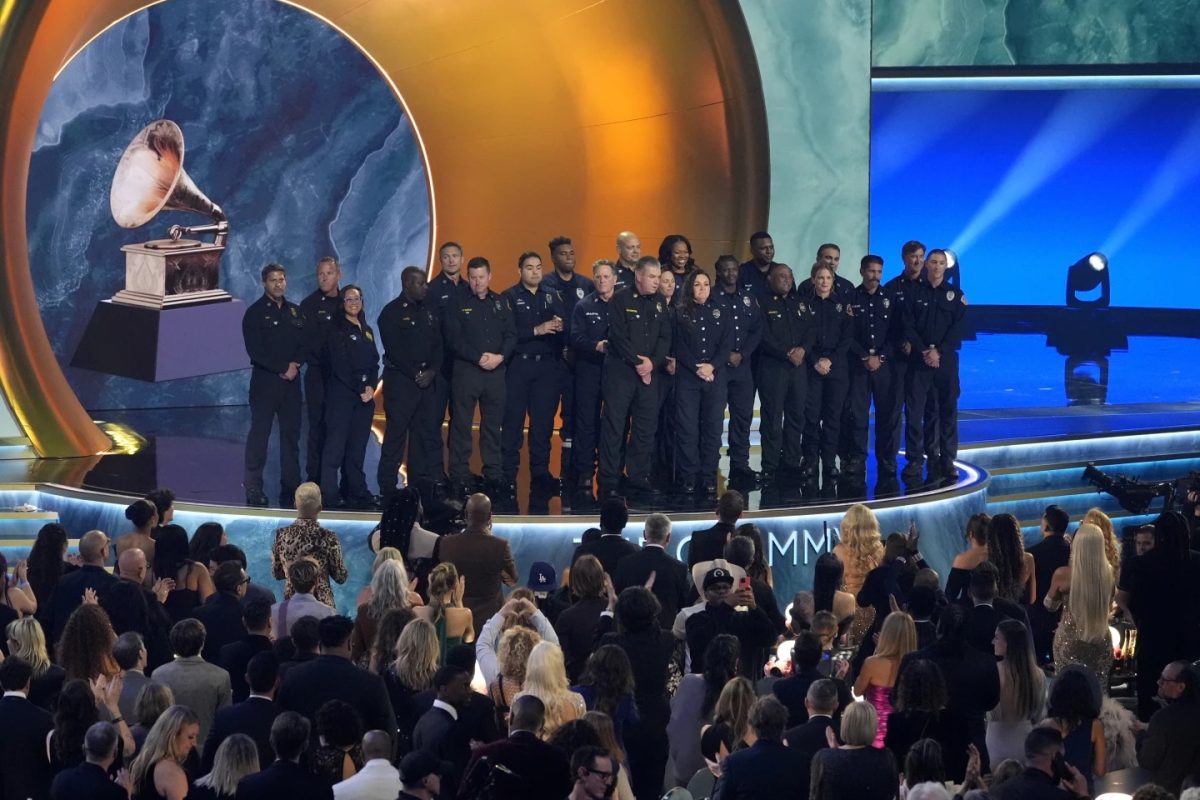The Lemon Twigs were the perfect band to play at the Cat in the Cream this past Saturday night. From their indie rock sound to the mullet hairstyles of their lead singers, Michael and Brian D’Addario, it was as if someone had manufactured the quintessential formula for a show at the Cat.
As I listened to some of their hit songs while hastily making my way over on Saturday, I was immediately struck by the trill of the lead singers’ voices. This was especially clear in their most popular song, “I Wanna Prove to You,” in which the singers repeatedly croon the same lyric. Despite my slight aversion to their vocals, I could see how their upbeat sound, which clearly had passion behind it, would make for a lively concert experience.
I arrived right when the show began, and as the band came on, I could tell my prediction was correct: unlike the overpowering droning of the vocals in their recorded tracks, the D’Addarios had pleasant voices which meshed well with the talent of the additional members of their touring band, Danny Ayala on bass and Reza Matin mainly on drums. With the band, The Lemon Twigs were able to create a much more holistic sound. It felt less like vocals over a track and more like separate pieces of a whole coming together.
An essential part of The Lemon Twigs experience was watching how they were able to engage the audience. At the beginning of the set during “The One” and “In My Head,” students were still trickling in. However, even after about 10 minutes into the show, there wasn’t much of a dynamic between band and audience. It seemed like Oberlin was skeptical. Maybe they were all thinking what I was thinking — Is this band any good? Or is it just another variation of every other indie rock group with sub-500,000 Spotify listeners? Students are known to have high standards for what they consider to be good music, but they’re also known to keep an open mind and take advantage of all the opportunities to hear free live music provided to them.
It seemed that The Lemon Twigs were picking up on this apprehension and somewhat contributing to it themselves. For the first half of their set, the band performed stiffly and didn’t often address the audience between songs. There was a mutual unsureness between audience and performer, with The Lemon Twigs appearing uncomfortable with Oberlin and Oberlin not knowing if they were spending their Saturday at the right place.
However, about halfway through the set, there started to be a noticeable vibe change, in large part due to bassist and singer Brian D’Addario. When not singing, D’Addario started to loosen up with the crowd, jumping around, kicking his legs up, and coming up to audience members in the front rows and playing right at their cameras. D’Addario earned a loud cheer from the audience every time he interacted with them without fail.
As audience and band developed a rapport with each other, the quality in music started to increase as well. There was a particular shift after they played “I Wanna Prove to You” and then introduced themselves with a little back and forth with the audience. After that halfway point, the enthusiastic head bopping of the audience spread beyond just those in the front row, the cheering after each song became increasingly louder, and in return, The Lemon Twigs’ passion which had been so present in their recorded tracks started to appear live as well.
By the end of the set the crowd was fully invested, with the final two songs on the setlist, “Rock Dreams” and “Leather Together” getting nearly the whole room dancing along. It was jarring going from the high energy of the closing song to the band’s awkward goodbye when they left before the animated cheers of the audience had died down.
As I left, what stuck with me most was not the music I had listened to but the feeling of observing the relationship between crowd and band grow so much over the course of just ninety minutes. The Lemon Twigs proved to the audience that they were more than just a pair of brothers whose dad is hyperlinked on their Spotify page. Instead, because they could actually engage with their audience, concert-goers were able to get over their skepticism and enjoy the sound and energy of musicians embracing their passion


